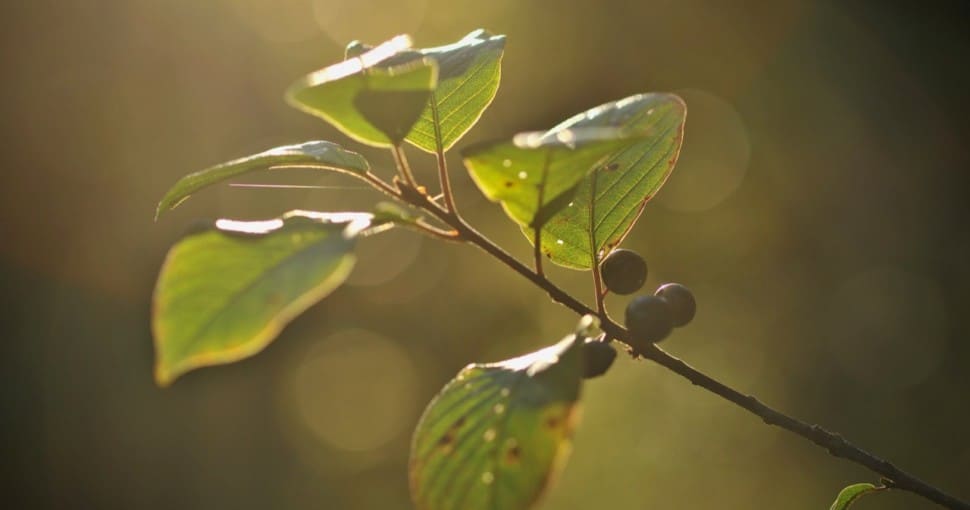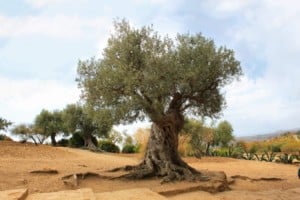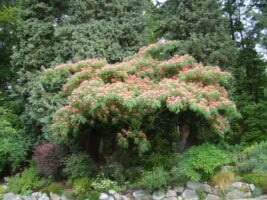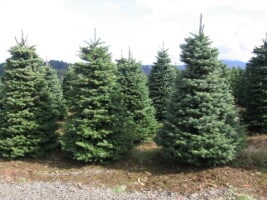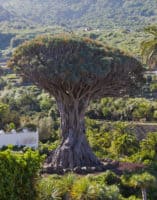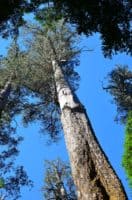Every spring dogwood trees erupt in dainty white or pink flowers. By autumn, they have turned into bright red berries known as drupes, attracting flocks of birds. But are they dangerous to kids and pets? Knowing if our loved ones are safe around these bright berries is important.
Contents
- Are Dogwood Berries Poisonous To Humans?
- Are Dogwood Berries Poisonous To Dogs?
- Are Dogwood Berries Poisonous To Cats?
- Are Dogwood Berries Poisonous To Horses?
- Are Dogwood Berries Poisonous To Goats?
- Are Dogwood Berries Poisonous To Chickens?
- Are Dogwood Berries Poisonous To Cows?
- Are Dogwood Berries Poisonous To Sheep?
- Are Dogwood Berries Poisonous To Deer?
- What Animals Do Eat Dogwood Berries?
Flowering dogwood berries are not classified as poisonous but are considered non-edible. Kousa dogwood berries are considered edible. Flowering dogwoods can give humans rashes and irritate the stomach. Large amounts can give dogs and cats GI distress, such as vomiting and diarrhea.
Related:
– Are Mistletoe Berries Poisonous?
– Are Juniper Berries Poisonous?
– Are Nandina Berries Poisonous?
There is a debate amongst the dog and cat community if the flowering dogwood should be reclassified from toxicity class III (internal irritant) to class II (minor toxicity).
Are Dogwood Berries Poisonous To Humans?
The Children’s Hospital of Philadelphia considers dogwood berries to be nonpoisonous. However, the bitter berries can cause indigestion and give humans rashes; thus, they are rated as a class IV for toxicity and are not completely safe. However, this is except for the Kousa dogwood; its berries are classified as edible for humans.
The American dogwood and Jamaican dogwood have been used in herbal and traditional medicines. However, the bark is used for these herbal treatments rather than the berries. Nor has the safety of using these bark remedies been tested, and consequently, their use is not recommended.
Thus, while dogwood berries are not considered poisonous to humans, it is best not to eat them and leave them for the birds.
Are Dogwood Berries Poisonous To Dogs?
Technically, dogwood berries are not classified as poisonous to dogs. However, there is considerable debate on whether dogwood berries should be reclassified. If a dog eats a few berries, it may experience some mouth and tongue irritation, but overall should be fine.
However, more significant amounts of dogwood berries can cause vomiting issues in the GI tract. Thus, vomiting and diarrhea can result. Also, there is a risk of obstruction in the GI tract in very small breeds.
If your dog is vomiting after eating dogwood berries, consult your vet, who might prescribe famotidine. General advice is not to feed the ill pet for at least 8 hours and not resume feedings until vomiting has ceased.
First foods after being ill should be easy to digest, such as boiled rice and chicken.
If you suspect there is an obstruction, contact your vet immediately.
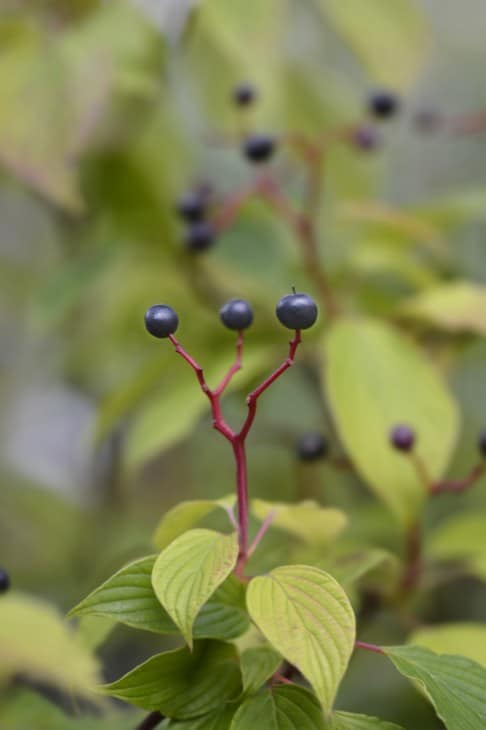
Are Dogwood Berries Poisonous To Cats?
Technically, dogwood berries are not listed as poisonous to cats. However, ingestion should not be encouraged as it can irritate the mouth and, in larger quantities, cause GI issues. In addition, the seeds may cause obstruction in small cats. However, the liver and kidney do not appear to be negatively impacted.
Should the cat be vomiting, do not feed them for at least 8 hours and not resume feeding until vomiting has ceased. Your vet may advise giving the cat famotidine.
Once feeding is allowed to resume, begin with gentle foods, like boiled chicken and rice. Do not reintroduce their regular diet until the cat has returned to normal health.
If you suspect the cat has an obstruction, contact your vet immediately.
Are Dogwood Berries Poisonous To Horses?
Dogwoods are not listed as being poisonous or toxic to horses. However, while it is considered safe to have dogwood trees in the pasture, it is not recommended you encourage the berries to be eaten.
Dogwoods grow naturally in the United States and can be found in the wild. Horses generally don’t eat from trees unless desperate. However, curiosity does lead horses to take an occasional chomp of a tree. But again, dogwoods are not listed as an equine danger.
Some varieties of dogwoods grow as shrubs. For example, some countries use these dogwood shrubs to make hedgerows for their horse pastures rather than a fence.
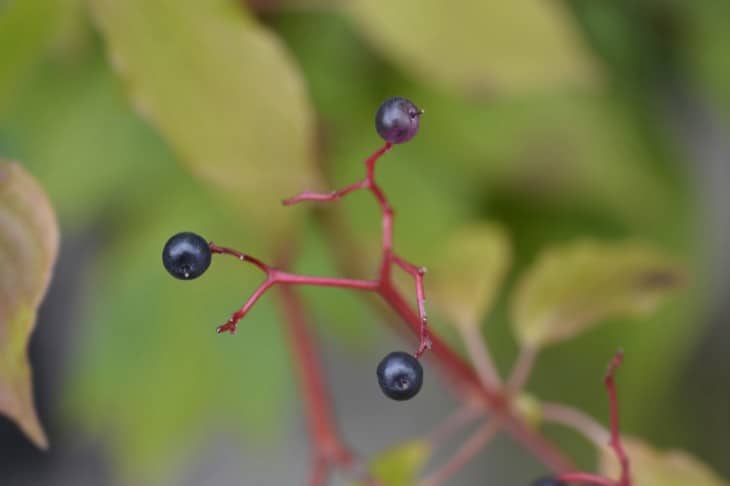
Are Dogwood Berries Poisonous To Goats?
Dogwood berries are not listed as poisonous to goats. However, most goats will have no interest in eating them, aside from a curious taste here and there due to their bitter flavor. They might, however, enjoy Kousa dogwood berries, which are different from other dogwood varieties.
Are Dogwood Berries Poisonous To Chickens?
Dogwood berries are not listed as poisonous or toxic to chickens. Some chickens will eat them once they’ve fallen to the ground; others ignore them. The reason may have to do with the fact that not all dogwood berries taste the same.
There are more than sixty-five varieties of dogwood trees and shrubs. Some of the fruit is enjoyable, such as the Kousa dogwood, and others are bitter. Thus, if your chickens are not eating your dogwood’s berries, it may be because your dogwood variety produces fruit that’s less appealing.
Are Dogwood Berries Poisonous To Cows?
Dogwoods are not listed as being poisonous to cows. There are parts of the world that use dogwood shrubs to make hedgerows. They are also sometimes used as a shade tree.
However, cows generally don’t seem to eat dogwoods.
Are Dogwood Berries Poisonous To Sheep?
Dogwoods are not listed as being poisonous to sheep. As previously mentioned, they are sometimes used as hedgerows or shade trees. But sheep do not generally enjoy munching on them.
Are Dogwood Berries Poisonous To Deer?
Dogwood berries are not thought to be poisonous to deer. It seems that deer tend to ignore dogwood berries. However, it is not unheard of for deer to browse on dogwood. They might nibble on the shoots and some of the bark. But usually, the tree is not significantly damaged.
What Animals Do Eat Dogwood Berries?
Around 75 animal species eat dogwood berries. Most of these are birds, including the American crow, northern cardinal, American robin, wild turkey, thrush, mockingbird, pine warbler, and various woodpeckers. Other animals that eat dogwood include black bears, beavers, squirrels, rabbits, skunks, foxes, and chipmunks.
All the dogwood tree is edible to some animal: the seeds, fruit, flowers, twigs, bark, and leaves. The trees are also crucial for the Azure butterflies. Sadly, in North America, the trees numbers are dwindling due to blight and the dogwood borer.

